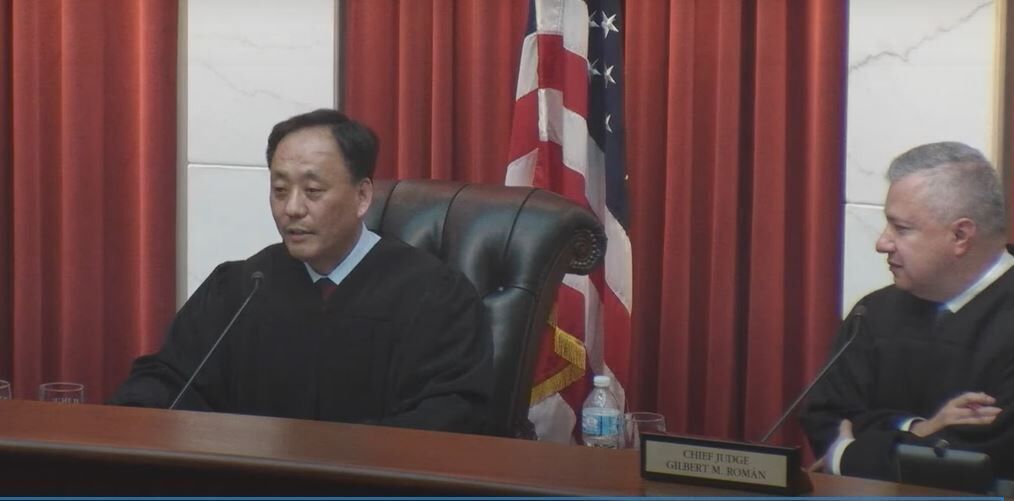10th Circuit, by 2-1, widens ability for governments to be held liable for policymakers’ misconduct
The federal appeals court based in Denver concluded on Friday that Sedgwick County could itself be held liable for its former sheriff’s sexual assault of a detainee, rejecting the argument that a government policymaker’s personal decision to violate someone’s rights should fall on them alone.
Plaintiffs may attempt to hold government entities liable for injuries public employees cause. There are various theories for doing so, including if an official policy or custom motivated the employee’s actions, if the government failed to train or supervise the employee, and if there is a directive by a “final policymaker” — essentially, a stand-in for the government itself.
But what happens when the final policymaker is also the one who personally violates the victim’s rights?
By 2-1, a three-judge panel of the U.S. Court of Appeals for the 10th Circuit concluded the government itself can be held liable, as long as the policymaker is acting in his area of authority. In doing so, the panel’s majority rejected the idea that ex-Sheriff Thomas Hanna’s personal motivation to sexually assault a detainee in transit mattered more than his role as a government policymaker.
“This does not mean that a municipality is liable for all misconduct by a sheriff. If Hanna had raped a customer at a bar after work, there would likely be no municipal liability,” wrote Judge Harris L Hartz in the July 5 opinion. But because Hanna was transporting his victim pursuant to his official duties at the time he violated her rights, “liability is appropriate, regardless of the miscreant’s motives.”
Judge Gregory A. Phillips dissented, believing the majority was opening up government entities broadly to liability whenever high-ranking officials disregard departmental policies and victimize others for personal reasons.
“With that as our circuit’s new rule, I see no way for a municipality to do anything but write checks — strict liability for the municipality despite its legal inability to constrain a rogue sheriff determined to gratify his sexual desires,” he argued.
In August 2016, Hanna planned to transfer Peatinna Biggs, an intellectually disabled detainee, between facilities. He ordered her to change out of jail clothes, put her in his personal vehicle, drove her to his home and sexually assaulted her.

Sedgwick County voters overwhelmingly recalled Hanna months later and in 2018, he received seven months in jail for his actions. Biggs filed a civil suit in federal court and a jury awarded her $8.25 million against Hanna in 2022.
As for the county’s role, now-U.S. Supreme Court Justice Neil M. Gorsuch, when he was a 10th Circuit judge, authored a 2007 decision making clear that a final policymaker’s actions are the policy of the government, making it appropriate to hold the government liable.
“This must include even actions by final policymakers taken in defiance of a policy or custom that they themselves adopted,” he wrote.

U.S. Supreme Court Justice Neil Gorsuch, in his chambers, at the Supreme Court building in Washington, U.S. September 13, 2019
However, prior to trial, U.S. District Court Judge Daniel D. Domenico determined the county itself could not be held liable for Hanna’s actions because his assault of Biggs had actually violated sheriff’s office policy.
“On Ms. Biggs’ reading, every action taken by a ‘final policymaker’ would amount a policy that could lead to municipal liability, even if it is contrary to actual, adopted policy. That is not the law,” Domenico wrote.
After trial, Biggs tried again to bring Sedgwick County into the equation, noting there was confusion about whether Domenico had actually dismissed the county from the case. Domenico conceded as much and further admitted the only way Biggs was likely to collect on her multimillion-dollar judgment was if the county chose to assume the debt of its former sheriff.
But “while Mr. Hanna’s position of power was an enabling factor in his assault on Ms. Biggs, the assault was wholly unrelated to the realm of his grant of authority with respect to transportation of prisoners,” Domenico reiterated.
On appeal, Biggs outlined that Hanna was the highest law enforcement authority in the county at the time he assaulted her. Acting within his authority to supervise and transport her, Hanna’s actions were, effectively, county policy.
“Policymaking authority entails the authority not just to make rules, but to adjust those rules in particular circumstances,” attorney Sean Ouellette told the 10th Circuit panel at oral arguments in January. Hanna “was the only person who could decide whether this violated county policy or whether it was an authorized exception or modification. There was no one above him who could decide, ‘No, that’s inconsistent with county policy. That’s not what we stand for.’”

The Byron White U.S. Courthouse in Denver, which is home to the U.S. Court of Appeals for the 10th Circuit.
The county’s attorneys emphasized there was no “policy motivation” for Hanna’s actions, only his “personal satisfaction.” But Judge Joel M. Carson III noted the problem was Hanna’s ability on his own to say what sheriff’s policy was or was not.
“It seems to me what happened is the county’s policies changed and, as a result, the safeguards failed and then you have a rape. It’s not so much was he authorized to commit a rape,” Carson explained. “You had policies that he changed that day that no longer made the inmate safe.”
Hartz, a George W. Bush appointee, and Carson, a Donald Trump appointee, ultimately endorsed that rationale. They waved aside the concern that Hanna’s personal motivations to do harm should exonerate the county of liability.
“If liability depends on whether there is a possible ‘proper’ motivation for the official’s action,” Hartz wrote, “the only victims who cannot obtain relief from a municipality for a policymaker’s misconduct are victims of sexual assault, for which there could never be a legitimate motive. Would that be such good policy?”
Phillips insisted it made more sense to hold governments liable for injuries policymakers specifically cause through executing their official duties — like cuffing a detainee too tightly or failing to buckle their seatbelt in a transport van.
“But those sorts of policies bear no resemblance to Sheriff Hanna’s supposed ‘policy’ of halting detainee jail transport for whatever time he needed to commit a sexual assault,” wrote Phillips, a Barack Obama appointee.
Although Biggs’ attorneys argued it would be proper to simply incorporate Sedgwick County into the jury’s verdict against Hanna, the 10th Circuit opted to let Domenico determine how the addition of the county post-trial would play out.
The case is Whitson et al. v. Board of County Commissioners et al.











